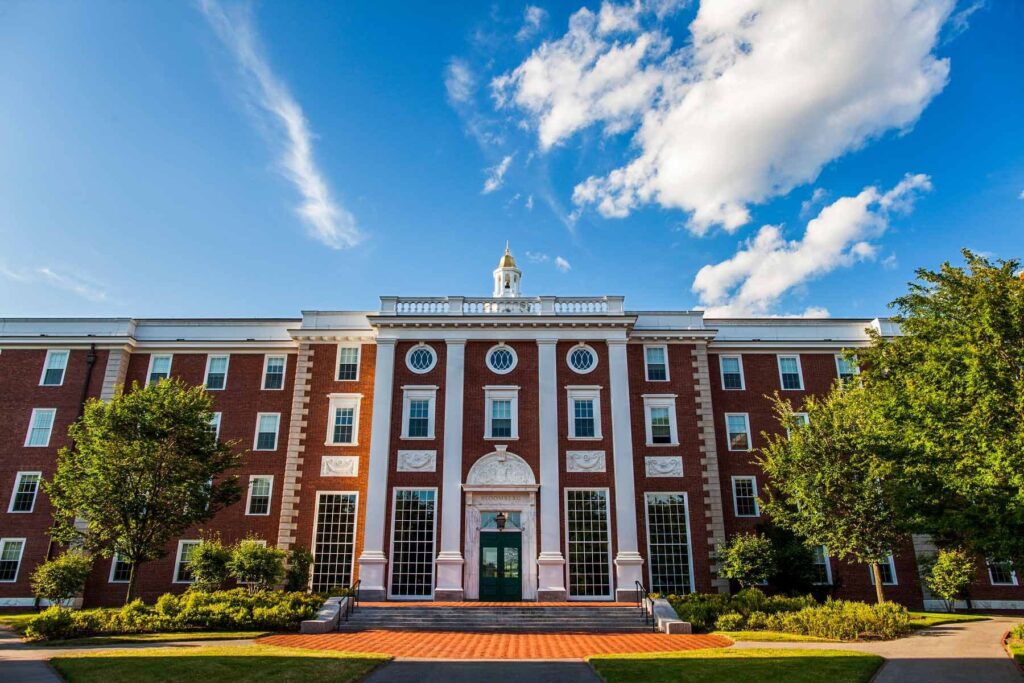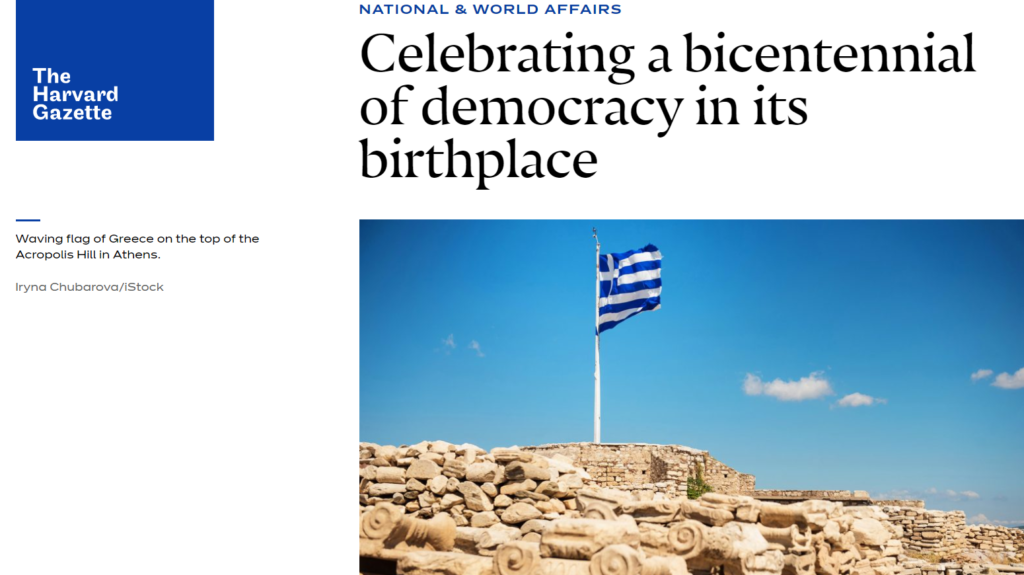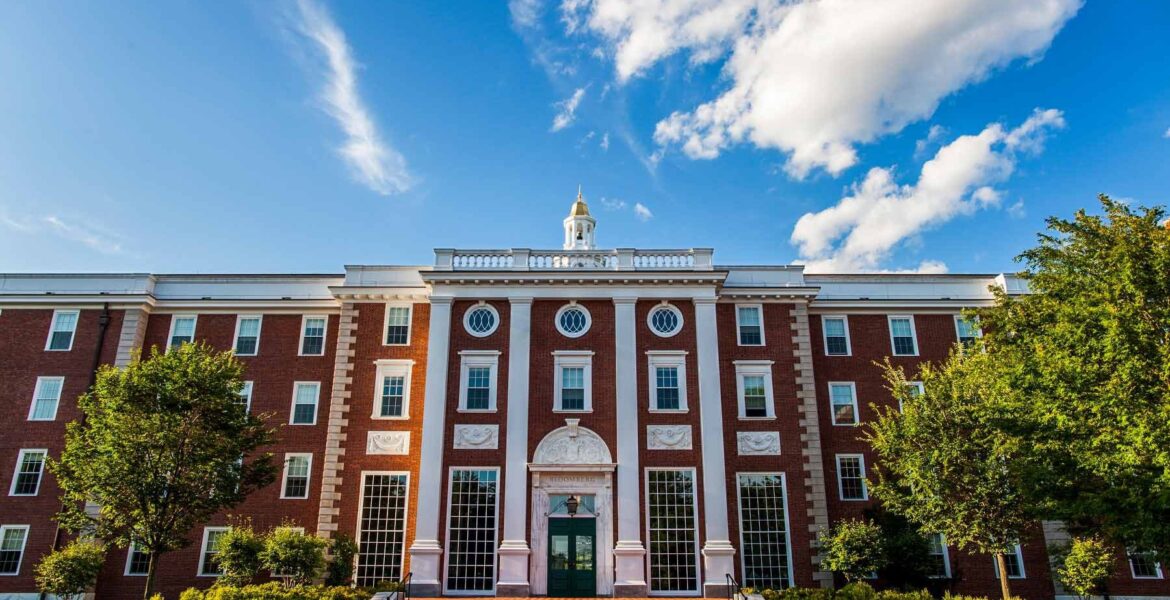Harvard University in Cambridge, Massachusetts, published a special feature on its university publication, the Harvard Gazette, honouring the bicentennial anniversary of the Greek Revolution.
“At Harvard and elsewhere, philhellenes celebrate Greek independence,” the article writes.
“Two hundred years ago today, Greece declared its independence. From the start, Harvard was there, helping both in the fledgling Mediterranean country and back in the United States.”

The Harvard Gazette also emphasised on the global repercussions that followed the Greek Revolution and the immediate impact it had around the world, as the first successful national liberal movement in the region.
It also goes on to add that the influence of the Greek Independence was a powerful example to many countries seeking their own independence, with the Greek war resulting in “a gradual change of the worldview in the international community.”
Moreover, Harvard University – the 3rd best university in the world according to 2021 rankings, behind MIT and Stanford – commented on the strong ties that the institution has with Greece and classical Greek studies, one of its most popular degree programmes, and also stated that what happened in Greece in 1821 was majorly important for the United States too.
“It is about the connection between the United States and the ancient Greek heritage.
"It informs a global discussion about the role of the humanities, and the role of the classical past, and what it means today, in a world where we are thinking about issues of diversity, inclusion and belonging.”
The university’s newspaper – which is also the most circulated university news publication in the world – also paid tribute to two very important American philhellenes, Edward Everett and Samuel Gridley Howe, both from Massachusetts and both graduates of Harvard University.
Everett, who taught ancient Greek literature, archaeology and Greek art for several years at Harvard, before becoming the Governor of Massachusetts, gave a major speech at the US Congress in 1823, advocating for the American support to the Greeks in their struggle for independence.
Additionally, Howe, soon after graduating from Harvard’s Medical School, sailed for Greece, where he joined the revolutionary army as a surgeon.
When he returned to the US a few years later, he brought along with him many orphan Greek refuge children and helped them with their education.

The Harvard Gazette article about the Greek Independence is part of a series of many Greece-related features and events that Harvard University is planning to celebrate this year, together with the Harvard Center of Hellenic Studies (CHS).
Before 1960, classical Greek studies, archaeology, Greek art and literature were some of the hundreds of courses that Harvard University offered to students, but due to their popularity, Harvard professors decided to found the CHS, which has since welcomed thousands of students, scholars, associates and guests.
CHS’s most famous event is the “Summer Program in Greece” which takes place in Greece every year and it is open to people from all around the world who wish to participate in a discussion about ancient and modern Greece and its contributions to the world.
This year, the event will happen online on June 26 and 27, with a record breaking registration of participants.
“This is a momentous anniversary of the Harvard Summer Program in Greece, as this summer would have marked the 20th year since the program's first session back in 2002,” Harvard University wrote in an announcement.
“These two memorable decades have been full of innovative courses, stimulating class conversations, explorations of Greek historical landmarks, common meals, shared laughs, and life-changing experiences, that made this program one of the oldest and most successful Harvard study-abroad programs of all time.”
If you are interested in participating at Harvard’s Summer Program in Greece, as well as Harvard’s other networking activities with Greeks from around the world, visit Harvard’s CHS Summer in Greece.
Greece among eight EU countries providing incentives for electric cars

